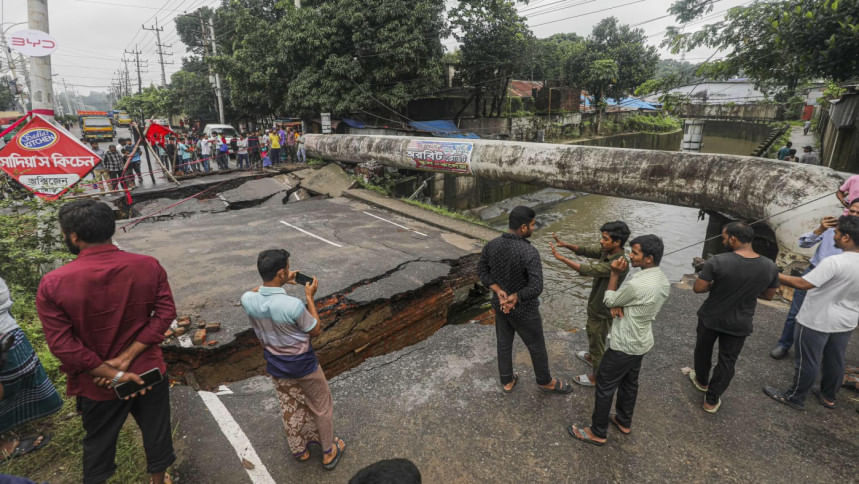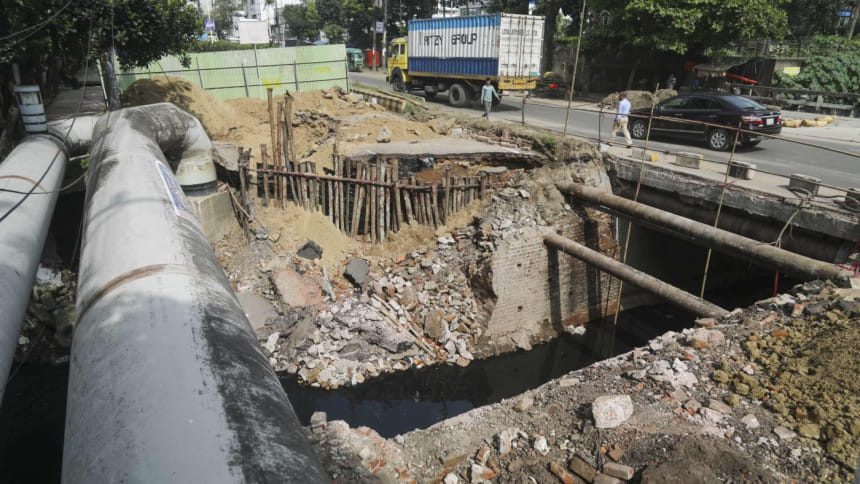Bridge collapse in Ctg: probe blames old foundation, heavy load, erosion

The investigation committee probing the collapse of a bridge over the Sheetal Jharna canal in Chattogram has submitted its report, identifying four specific causes behind the failure and making urgent recommendations to prevent similar incidents.
The report, handed over to the chief executive officer of Chattogram City Corporation (CCC) yesterday, concluded that the old brick foundation of the nearly 50-year-old bridge could not withstand the increased water pressure following the widening and deepening of the canal.
It further pointed to prolonged erosion caused by drain water near the foundation, constant pressure from heavy industrial vehicles, and damage risks linked to WASA's installation of large-diameter pipelines as contributing factors.
According to the findings, the canal's width was increased from 6 to 13 metres under projects by the Chattogram Development Authority and the army, which intensified the flow of monsoon water.

The stronger currents gradually washed away the soil beneath the foundation, leading to the collapse of the northern brick abutment and the partial sinking of the bridge structure.
The report also highlighted that drain water had been eroding the base for years, heavy lorry traffic exerted excessive strain on the ageing brickwork, and the installation of 900mm and 1200mm pipelines by WASA heightened the risk of structural damage.
To address these concerns, the committee recommended identifying all vulnerable old bridges and culverts affected by canal dredging and urgently rebuilding them to modern standards. It also called for the reconstruction of retaining walls that collapsed due to increased canal depth, the restriction of heavy vehicles on risky bridges with clear warning signs, and better coordination among service agencies such as WASA, gas and BTCL during pipeline installations.
A committee member told The Daily Star on condition of anonymity that the bridge collapse was the result of an aged structure struggling against altered water flow patterns.
"We have made practical recommendations for the future," the official said.
Responding to the report, CCC's Chief Executive Officer Sheikh Muhammad Touhidul Islam said the corporation would take immediate steps to implement the recommendations to avoid further public suffering.
The bridge gave way after heavy overnight rainfall on August 6, disrupting traffic and forcing commuters to seek alternative routes.

 For all latest news, follow The Daily Star's Google News channel.
For all latest news, follow The Daily Star's Google News channel. 



Comments